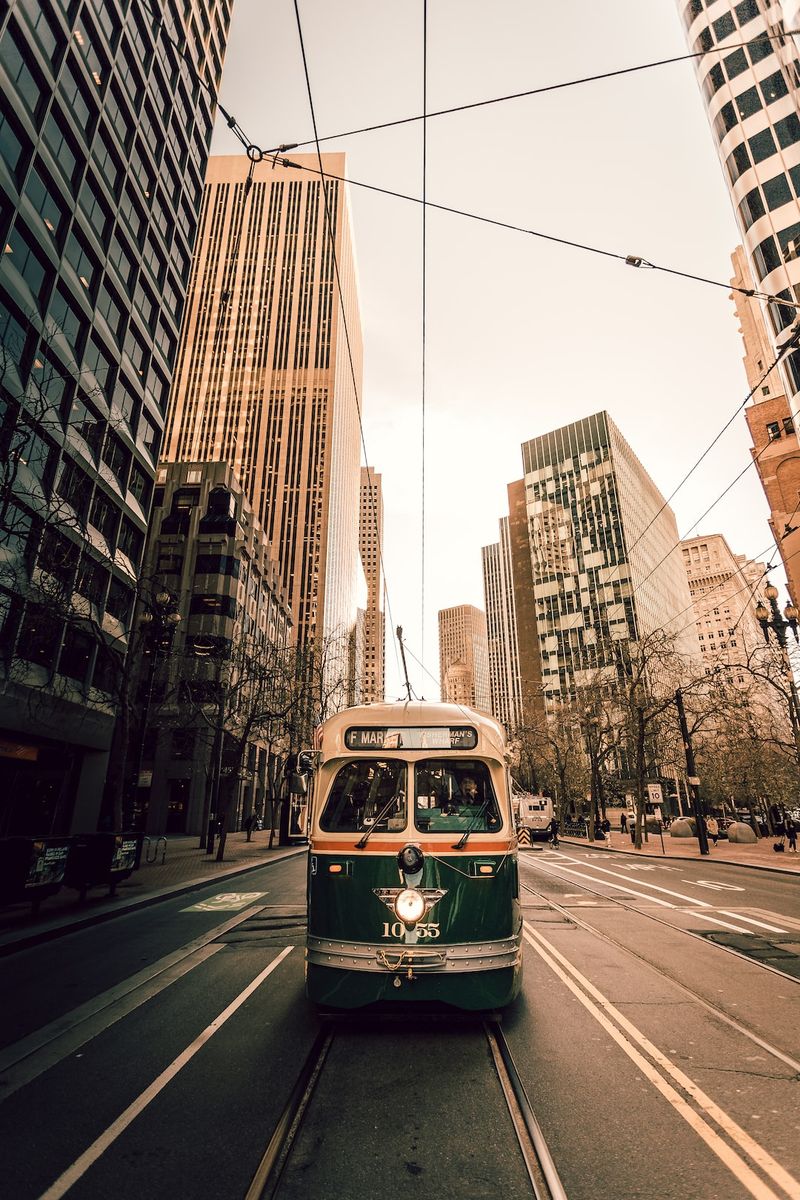Table of Contents
5 reasons why affordable and accessible public transport is crucial for social and climate justice
1. Affordable public transport is life-changing and a powerful tool against the climate crisis
Transportation is a significant contributor to global greenhouse gas emissions, accounting for around 15% of total emissions worldwide. In the European Union, it is estimated to be responsible for almost a quarter of these emissions. Improving public transport systems is therefore crucial not only for combating climate change but also for connecting people to opportunities they are currently denied. Mobility justice is climate justice.
In many cities, public transport is a lifeline for low-income communities. The high cost of transportation, which averages around 15% of a household’s budget in the European Union and 16% in the US, places a significant burden on these households. Expensive ticket prices can discourage people from using public transit, leading to more cars on the road, increased traffic congestion, and higher greenhouse gas emissions.
Initiatives such as Austria’s “climate tickets” and Germany’s reduced transport prices have shown promising results in encouraging public transport use and reducing emissions. For example, during Germany’s experiment with a monthly ticket costing only €9, an estimated 10% of summer train journeys replaced trips that would have been made by car, resulting in the equivalent of taking 1.5 million cars off the road. Making public transport more affordable not only saves energy, money, and emissions but also improves air quality, health, and overall quality of life.
2. Affordable public transport is essential for social equity
Transport affordability challenges have been intensified by the increase in energy prices and the global cost of living crisis. Rising transport costs disproportionately affect marginalized communities, exacerbating existing inequalities. Research in Brazil has shown that Black, Brown, and low-income Brazilians pay higher fares, use more overcrowded buses and trains, and have fewer transport options available to them.
3. Addressing inequalities and violence against women is crucial to make transport accessible
Women, on average, use public transportation more than men and are more reliant on it. However, safety concerns can increase costs for women and LGBTQIA+ individuals, leading them to pay additional (hidden) transport costs to ensure their safety. This can include using taxis or taking longer, less direct routes on public transport. Safety on and around public transport is a significant issue for women and LGBTQIA+ communities, making transport less accessible and restricting opportunities.
Initiatives like the introduction of fare-free buses for women in Karnataka, India, have shown the economic benefits of addressing the mobility needs of women. The scheme led to a 23% increase in bus passengers in the first two weeks and has the potential to increase women’s participation in the workforce, thereby promoting gender equality.
4. Accessible public transport is vital for people with disabilities
An estimated 1.3 billion people, representing 16% of the world’s population or 1 in 6 individuals, experience significant disabilities. Ensuring accessibility in public transport is a global issue that needs to be addressed. Cities like London and Tokyo have made significant efforts to improve accessibility, but there is still much work to be done.
The COVID-19 pandemic highlighted the vulnerability of individuals with disabilities in using public transport. Safety measures such as mask requirements and social distancing posed additional challenges. Improving transport accessibility for people living with disabilities is not only essential for climate and mobility justice but also for creating a sustainable transport system that serves everyone.
5. Rural areas deserve quality public transport
In many rural areas around the world, people do not have access to public transport networks at all. Those who do often face higher costs and longer travel times compared to their urban counterparts. Improving access to public transport in rural areas is not only essential for reducing climate emissions but also for connecting people to essential services like healthcare.
Overall, making public transport affordable and accessible should be a top priority for governments aiming to tackle the climate crisis and combat inequality. It has the potential to create profound impacts on individuals, families, communities, and the environment by improving mobility, economic opportunities, health, and overall quality of life.
Source: Greenpeace

<< photo by Antonio Janeski >>
The image is for illustrative purposes only and does not depict the actual situation.
You might want to read !
- The Criminalization of Environmental Defenders in Mexico: Suppressing the Right to Protest
- From Advocacy to Action: Uniting for Social Security Rights
- Setting the Truth Free: Exposing the Reality of Chechnya’s Anti-Gay Purge
- Climate Justice for Africa: Engaging with the Paris Agreement Implementation and Compliance Committee
- Youth from 100 countries demand climate justice at Climate Justice Camp: A call to action before COP28
- Youth Activists Mobilize for Climate Justice at Global Camp: Highlights and Demands Ahead of COP28